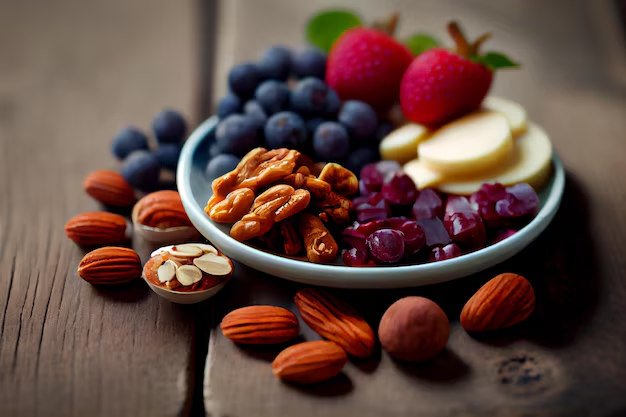A strong immune system is essential for defending your body against illnesses, infections, and diseases. While a balanced diet rich in vitamins and minerals is crucial for immune health, certain “superfoods” can provide an extra boost. Superfoods are nutrient-dense foods that offer numerous health benefits and can support the immune system’s efficiency. In this article, we’ll explore some of the best superfoods that can help strengthen your immunity and keep you feeling healthy.
1. Citrus Fruits: Vitamin C Powerhouses
Citrus fruits like oranges, lemons, grapefruits, and limes are packed with vitamin C, a potent antioxidant that plays a crucial role in immune health. Vitamin C helps stimulate the production of white blood cells, which are essential for fighting off infections. Regularly consuming citrus fruits can support immune function, reduce inflammation, and improve your overall health.
Benefits:
- High in vitamin C.
- Stimulates white blood cell production.
- Reduces the risk of infections.
2. Garlic: Nature’s Antimicrobial
Garlic has been used for centuries for its medicinal properties, including its ability to boost the immune system. Rich in sulfur compounds like allicin, garlic has been shown to enhance the function of immune cells, promote healthy circulation, and fight off harmful pathogens. Adding garlic to your diet regularly can help reduce the duration of colds and improve your body’s resistance to infections.
Benefits:
- Antimicrobial and antiviral properties.
- Strengthens immune response.
- Reduces the severity of colds.
3. Ginger: A Powerful Anti-Inflammatory
Ginger is known for its anti-inflammatory and antioxidant properties, making it a fantastic addition to any diet aimed at boosting immune health. The bioactive compounds in ginger, such as gingerol, help support a healthy immune system by reducing inflammation and supporting digestion. Whether consumed in tea, smoothies, or cooked dishes, ginger can provide a natural boost to your immunity.
Benefits:
- Reduces inflammation.
- Supports digestion and immunity.
- Acts as a natural decongestant.
4. Spinach: A Nutrient-Dense Green
Spinach is rich in vitamins A, C, and E, as well as antioxidants that help fight off oxidative stress in the body. It also contains folate, which is essential for the production of new cells, including immune cells. Incorporating spinach into your meals is an easy way to support immune function and provide your body with essential nutrients.
Benefits:
- High in vitamins and antioxidants.
- Supports immune cell production.
- Reduces oxidative stress.
5. Yogurt: Probiotics for Gut Health
Your gut health plays a key role in regulating your immune system, and consuming probiotic-rich foods like yogurt can help maintain a healthy gut microbiome. Yogurt contains live beneficial bacteria that support digestion, enhance nutrient absorption, and boost immune function. Opt for plain, unsweetened yogurt to maximize health benefits without added sugar.
Benefits:
- Supports gut health with probiotics.
- Enhances immune system function.
- Improves digestion and nutrient absorption.
6. Almonds: Vitamin E for Immune Health
Almonds are an excellent source of vitamin E, a powerful antioxidant that helps protect the immune system from oxidative damage. Vitamin E is also known to enhance the production of immune cells and help the body fight infections. A handful of almonds can make for a healthy, immune-boosting snack while providing a good dose of healthy fats.
Benefits:
- Rich in vitamin E.
- Enhances immune cell production.
- Protects against oxidative damage.
7. Turmeric: The Anti-Inflammatory Spice
Turmeric contains curcumin, a compound that has potent anti-inflammatory and antioxidant properties. It can help modulate the immune system, reduce inflammation, and promote healthy cell function. Adding turmeric to your meals or drinking turmeric tea can be an effective way to boost your immune system and promote overall health.
Benefits:
- Anti-inflammatory and antioxidant properties.
- Modulates immune system function.
- Supports healthy cell function.
8. Green Tea: A Natural Immune Booster
Green tea is packed with polyphenols, particularly catechins, which are powerful antioxidants that help fight off harmful bacteria and viruses. Green tea has been shown to boost immune function, reduce inflammation, and improve overall health. Drinking green tea regularly can give your immune system an added layer of protection.
Benefits:
- High in antioxidants.
- Boosts immune function.
- Reduces inflammation.
9. Berries: Antioxidant-Rich Superfoods
Berries like blueberries, strawberries, and raspberries are packed with antioxidants, vitamins, and fiber. These nutrients help protect your body from oxidative stress and support immune system health. The antioxidants in berries also help fight free radicals, which can damage immune cells and hinder immune function.
Benefits:
- High in antioxidants and vitamins.
- Protects against oxidative stress.
- Supports immune health.
10. Mushrooms: Immune-Boosting Powerhouses
Certain types of mushrooms, such as shiitake, maitake, and reishi, are known for their immune-boosting properties. These mushrooms contain compounds that help activate immune cells and improve their response to infections. Including mushrooms in your diet can support immune health and increase your body’s ability to fight off diseases.
Benefits:
- Boosts immune cell activity.
- Enhances immune response.
- Protects against infections.
Also Read: How Can You Make Quick And Healthy Meals At Home?
Conclusion
Incorporating superfoods into your daily diet is a natural and effective way to support your immune system. From vitamin C-rich citrus fruits to gut-boosting probiotics in yogurt, there are plenty of nutrient-dense options that can strengthen your immunity and protect your body from illnesses. By making these superfoods a regular part of your meals, you can ensure your immune system stays strong and resilient in the face of environmental stressors.
